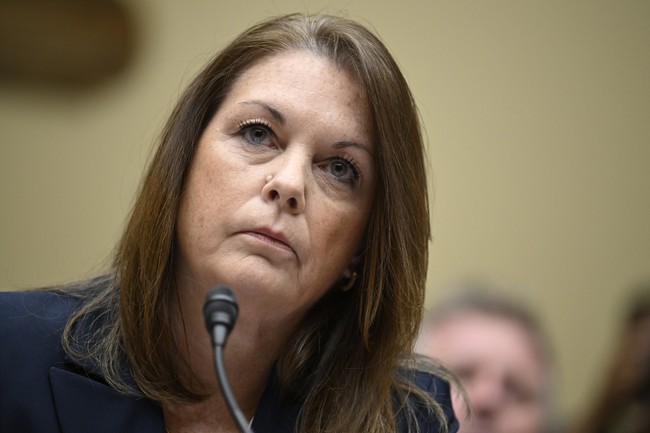
www.theblaze.com
A belated defense of Brit Hume
Here’s a story that aged worse than Joe Biden.It’s a PolitiFact “fact-check” of Brit Hume from four years ago. In retrospect, it’s a masterclass in how the media gaslights its readers while pretending to hold a torch for truth.I worked with Brit Hume for nearly 35 years at Fox News. Between hundreds of staff meetings and countless hours on air, I discovered Brit has a rare, almost annoying quality: He is virtually always right. He’s a man who speaks with precision, choosing his words carefully.Before the first debate in 2020 between Donald Trump and Biden, Brit had this to say: "Elderly people experiencing memory loss and other problems associated with age can go for periods, for hours at a time and be just fine.” He added, “I don’t think there’s any doubt Biden’s senile, but that doesn’t mean it’s going to show up tonight.”Brit was, once again, quite right. Biden was indeed senile, and it wasn’t apparent at the bruising interrupt-a-thon debate with Trump. Correct or not, however, Hume had committed the sin of calling the man-who-must-defeat-Trump “senile,” and that didn’t sit well with a press corps dedicated to Biden’s victory.PolitiFact could have easily found an expert who noticed what was painfully obvious to a casual observer four years ago: Joe Biden was slipping mentally.Enter PolitiFact, a fact-checking site widely accepted by the legacy media as an arbiter of truth. It’s run by the Poynter Institute, a nonprofit journalism training and research group. Its motto? “Democracy needs journalism. Journalism needs Poynter.”Poynter is not just a few high-sounding liberals but a multimillion-dollar organization bankrolled by donors such as Google, Facebook, the Bill and Melinda Gates Foundation, and George Soros’ Open Society Foundations.PolitiFact is what some might call part of the swamp, a “trusted” Washington outlet that is anything but. Its write-ups aren’t always wildly biased, but they are enough so that the following is no surprise. With that said, here’s how it distorts reality.Twist what someone says, then debunk the twisted versionBrit used the word “senile,” a common term for describing an older person showing signs of mental decline. It’s not a medical diagnosis; it’s everyday language. Webster defines it as: “relating to, exhibiting, or characteristic of old age; exhibiting a decline of cognitive abilities (such as memory) associated with old age.” It was a word that quite perfectly described Joe Biden four years ago.PolitiFact acknowledged this, saying, “Broadly, the term senile is defined as pertaining to old age,” and “often used by some people” in association with memory loss or diseases. Then it threw in a sneaky twist: “Senility is not a precise medical term but is often used in place of the more precise and accepted medical term of ‘dementia.’”Now that it'd magically transformed “senile” into “dementia” in Brit’s mouth, the article went on to debunk what he never said.Find experts who agreeAn honest journalist should do her best to consult with experts then give readers insight into where those experts stand. A dishonest one, like PolitiFact’s Miriam Valverde, instead uses them to disguise her opinion column as an honest, fact-checking article. To be clear, though, her assignment wasn’t actually to check facts but to “prove” Brit wrong. She found two geriatrics experts to bolster her case. One, Donald Jurivich, was so impressive that his title consumed 22 words: the Eva Gilbertson Distinguished Professor of Geriatrics and Chairman of Geriatrics at the University of North Dakota School of Medicine and Health Sciences. Both experts assured us Biden didn’t have dementia.Valverde then also quoted Biden’s personal physician as saying, “Vice president Biden is a healthy, vigorous, 77-year-old male, who is fit to successfully execute the duties of the presidency.” It’d be four years until the White House revealed Biden has never been given a cognitive test. Remember, you can’t fail a test you didn’t take.Of course, had she or PolitiFact had a shred of objectivity, they could have easily found an expert who noticed what was painfully obvious to a casual observer four years ago: Joe Biden was slipping mentally. Nope, all the experts agreed that up was down.One of the professors even defended Biden, saying he sometimes paused to “compensate for his stutter.” Can we stick a fork in this one as well? I’ve watched and listened to Joe Biden since the Clarence Thomas confirmation hearings, and I never once heard him stutter. If he did so his youth, it’s been behind him for at least 33 years. The “experts” knew this too, of course. They were just playing their role in hiding Biden’s cognitive decline.Call him raci… er, sexi… er, ageist!If you’re pretending to be an honest reporter, you can’t just go about calling people “ageist.” No, you find someone else to do it for you, like a ventriloquist with a particularly judgmental dummy.Valverde used the professor with the long title who said Brit’s comments were a “shameful display of ageism and ignorance.” And, in case you missed it the first time, she quoted him a second time, reminding us “the use of ‘senile’ is a pejorative descriptor and reflects unmitigated ageism.”It’s a pretty rich claim, especially considering that Brit is both the same age as Biden and readily admitted that he has “traces of this myself, I know what it feels like.” Fortunately for Brit, Joe Biden is a white male, so the experts were stuck with merely calling him a shameful ageist.I rate PolitiFact’s article as “mostly propaganda.”But this isn’t just a history lesson; they’re still with us and still up to the same shenanigans. A recent example: “Donald Trump stated on July 24, 2024 in a speech at a rally in Charlotte, North Carolina: Vice President Kamala Harris ‘endorsed free taxpayer-funded government health care for illegal aliens.’” PolitiFact’s rating? “Mostly false.”PolitiFact’s case? In her full-throated defense (great video here) of health care for everyone residing in the United States — including illegal aliens — she didn’t specifically use the word “free.”The gaslighting continues.Editor’s note: A version of this article first appeared at Ken LaCorte’s Substack.

















